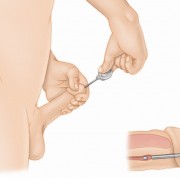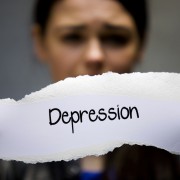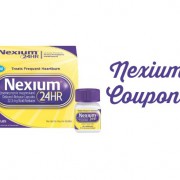The Battle of The Most Popular Antidepressants in Canada
Prozac, Zoloft and Celexa are regularly recognized as the “golden trio” in the world of antidepressants. Both in the United States and Canada, these 3 antidepressants are considered as the most prescribed ones for people with different depressive conditions. However, the number of all existing antidepressants can’t be limited with these 3 titles.
According to the vast choice of antidepressants, including the catalogue of Canadian Pharmacy, there are few dozens of approved pills and herbal supplements that can be legally used by Canadians for relieving the symptoms of major depression and similar psychotic disorders. Monthly our Customer Support Center receives dozens of emails with a request to explain the differences of these antidepressants and call the best one. We decided to dedicate this post to the so-called “battle” of antidepressants.
The pros and cons of the most common in Canada antidepressants
1. Effexor a.k.a. venlafaxine
Pros: generally well tolerated if started in low doses.
Who can use: depression sufferers with fatigue-like symptoms, also a good option when SSRIs don’t work, not ideal for patients with hypertension.
2. Celexa a.k.a. Citalopram
Pros: fewer overall side effects than some antidepressants, but the serotonin-related side effects can be powerful.
Who can use it it: ideal for the elderly because of fewer side effects when prescribed at lower doses.
3. Paxil a.k.a. Paroxetine
Pros: easier to start and stay on than others.
Who can benefit from using it: when depression causes fatigue, ideal for anxiety symptoms and anxiety disorders, not ideal where weight gain is a health concern.
4. Zoloft a.k.a. Sertraline
Pros: has the fewest side effects.
Who can use it: for milder or chronic cases of depression, because it has fewer side effects.
5. Wellbutrin a.k.a. Bupropion a.k.a. Zyban (also used in a different chemical formula for smoking cessation)
Pros: this norepinephrine dopamine reuptake inhibitor (NDRI) is added on to other antidepressant treatments that lose effectiveness over time or cause sexual dysfunction.
Who should use: not an ideal first-line treatment but ideal for depression sufferers with adult ADD.
6. Remeron a.k.a. Mirtazapine
Pros: this norepinephrine dopamine reuptake inhibitor (NDRI) is added on to other antidepressant treatments that lose effectiveness over time or cause sexual dysfunction.
Who should use: not an ideal first-line treatment but ideal for depression sufferers with adult ADD.

SSRNIs are the new trend among antidepressants in 2016
SSRNIs stand for selective serotonin and noradrenalin reuptake inhibitors (What is the difference between SSRI’s and SSNRI’s?). These are the effective modern dual-action antidepressants spared the side effects of some previous counterparts. Their use gives a positive result at 2-3 week. Due to various side effects from the group of antidepressants is difficult to select one effective means. Consider the most popular newer antidepressants, which are appointed in Canada.
Newer antidepressants group of new generation of SSRBIs are appointed in depressive states. Their effectiveness depends on the application of force and proportionality in selective inhibition of norepinephrine and serotonin receptors. The ability to block the release of the two substances eliminates the need for multiple drugs in the pathology of a violation of both the mediators exchange. The most popular antidepressants from this group in Canada are Fluoxetine, venlafaxine, milnacipran. Let’s take a closer look at them and other drugs from this category:
1) Venlafaxine
This is a rather potent medicine with narcotic side effects arising due to the severe blockade of norepinephrine release in neuronal synapses. It is appointed in schizophrenia and other mental disorders, accompanied by depressive states.
2) Fluoxetine
Its effect is associated with a decrease in serotonin, which produces a “soft” effect. The drug is used worldwide in depressive disorders, bulimia nervosa, but other new-generation antidepressants preferably in front of him.
The widespread use of medication received by the absence of effects on the exchange of other mediators, in addition to norepinephrine and serotonin. Stimulating and soothing weak activity of Fluoxetine allowed to use it in ambulatory clinical practice physician.
Regardless of the time of reception of a drug is well absorbed. Its half-life period is 1-3 days. The duration of action of up to 15 days. The standard dose of an antidepressant for treating phobias is 1 capsule per day.
Fluoxetine is tolerated quite well. Side effect or weakly expressed or absent. In any case, the detection of adverse effects of the drug when used should not be stopped, but only carry out corrective therapy disorders. Contraindications focus on hypersensitivity to Fluoxetine and the simultaneous use with the MAOIs.
3) Sertraline
Sertraline is a new pill in a new generation of antidepressants with the most pronounced anti-depression effect. Is the “gold standard” in the treatment of anxiety and depression. Maximum efficiency is observed in bulimia nervosa (anorexia). A recommended by Canadian Pharmacy’s experts dose is 50-200 mg per day.
4) Opipramol
This is an antidepressant with antiemetic, hypothermic and anticonvulsant effect. Its action is characterized by anti-serotonin, analgesic and antihistamine effect. The antidepressant is used to stabilize the active background. In the early days of the drug observed a pronounced tranquilizing effect.
Previously Opipramol was used to stabilize the autonomic system in the natural process of urinary organs, intestines, heart pain and vegetative-vascular dystonia. As a result of the above mentioned effects Opipramol is considered as one of the most effective “psychosomatic hormonizers”.
The drug is used in outpatient and inpatient with myocardial infarction, the treatment of diseases of internal organs, bronchial asthma, angina, high blood pressure. The therapeutic dose is 100-200 mg per day.
Learn more about this medications at drugs.com, rxlist.com or at mycanadianpharmacyrx.com/top-100-drugs
The clinical studies of new-gen antidepressants
The new generation of antidepressants well proven in clinical trials, which were held in the Netherlands. In determining the effectiveness of drugs for in-vitro evaluation of the positive and negative sides is necessary to exclude the effect of “placebo”. It refers to the psychological state of improvement, which is not justified by the biochemical action of the drug. Sertraline is the “gold standard” against which to compare the action of the other antidepressants. Clinical studies in the Netherlands have revealed some interesting features of modern drugs for the treatment of depressive states. So such superiority correlations were confirmed in 42 independent studies on the therapeutic effect:
- Citalopram over Reboxetine;
- Fluoxetine on Fluvoxamine;
- Reboxetine on Paroxetine;
- Escitalopram to Citalopram;
- Mirtazapine on Fluoxetine,
- Sertraline over Fluoxetine.
A better tolerability was significantly pronounced for Fluoxetine, which has a “soft”, but stable therapeutic effect, though it is much weaker than other antidepressants.
The group combinatory therapy is more effective when it comes to Mirtazapine, escitalopram and sertraline over Fluoxetine and Duloxetine. In sertraline monotherapy effect is somewhat lower than with the combinatory therapy of Mirtazapine and Escitalopram.
Some modern new generation antidepressants have a pronounced effect on the metabolism of serotonin and noradrenaline systems in nerve cells. This mechanism of action allows them to be used in the treatment of chronic diseases. For example, venlafaxine (Effexor) is a selective blocker of serotonin receptors, but at higher dosages blocks the reuptake of norepinephrine.

Remeron (Mirtazapine) is a tetracyclic antidepressant with a particular mechanism of action. It increases the level of histamine, working on postsynaptic serotonin metabolism. The drug is given at bedtime insomnia. This approach is explained the histamine concentration increases, leading to lethargy. However, Mirtazapine improves the level of noradrenaline, thus calming effect in addition has side effects, like other antidepressants. The results of a Dutch study confirmed that Reboxetine shows the weakest effect of all antidepressants mentioned above.
These results clearly show that two of the most effective drugs (Mirtazapine and Venlafaxine) are not the best choice because of the side effects caused by them. The authors argue that the best choice at the beginning of drug treatment of depression is Sertraline – on the basis of its efficacy, side effect profile and its cost.
Non-registered in the Netherlands, Reboxetine provides the lowest efficiency of the considered twelve antidepressants. The recommendation of the researches do not use this drug as the drug of first choice for acute treatment of depression.
It is noteworthy that Paroxetine and Fluoxetine – that in Canada are often appointed as the antidepressants of the first choice – during the analysis of their effectiveness are not at the top and the probability of dropping out of therapy as a result of the failure of the drug the patient is great, especially for Paroxetine.
How do antidepressants help people diagnosed with depression? Should you really take them?
The action of the majority of antidepressants has to do with facilitation of the so-called neurotransmission process. This process is empowered by neurotransmitters, endogenous brain messengers that connect neurons and transmit signals required for basic functions of the organism. There exist more than individually identified neurotransmitters, but their actual number could not be specified so far. Depletion of neurotransmitters leads to decrease in the quality of everyday life, in particular because they directly affect production of the ‘happy’ hormones of the body. Depression is one of the many results of neurotransmitter scarcity, and antidepressants address issues caused by neurotransmitters thrown off the balance.
Despite a common belief, antidepressants do not provide an instant fix. On average, between 2 and 4 weeks should pass before they reveal their true potential. The effects that should be expected are alleviation of chagrin, loss of hope and motivation for living and general moodiness that accompany every depressive state.
If depressive symptoms are not reduced after 3 weeks, consult your healthcare specialist. Perhaps you should change the dosage or medication. It is normal practice: patients usually drawn first antidepressant generally does not apply. Wait another 3 months to assess the effectiveness of the drug correctly.
Usually the course of antidepressant treatment lasts no longer than a year. Do not give up taking the medicine until you pass the whole course. If you become difficult to fall asleep, ask your doctor attending to develop a suitable scheme. For example, you can take the pill every day for breakfast.
Some patients worry that antidepressants will turn them into numb robots. These drugs only reduce the feeling of sadness, while other emotions do not disappear. Others fear that they will have to “be hooked” on antidepressants for life. The usual course of antidepressants is from 6 to 12 months. Antidepressants do not cause physical addiction.
Canadian Online Pharmacy http://www.mycanadianpharmacyrx.com recommendations should be followed up by an in-person examination before you start to use antidepressants. Only a qualified specialist can prescribe using any of the mentioned antidepressants. But if you have already such recommendation or RxX for a certain antidepressant or want to try on your own a new medication with similar effects (though we do not recommend self-treatment) the services of Canadian Pharmacy are always at your disposal.










